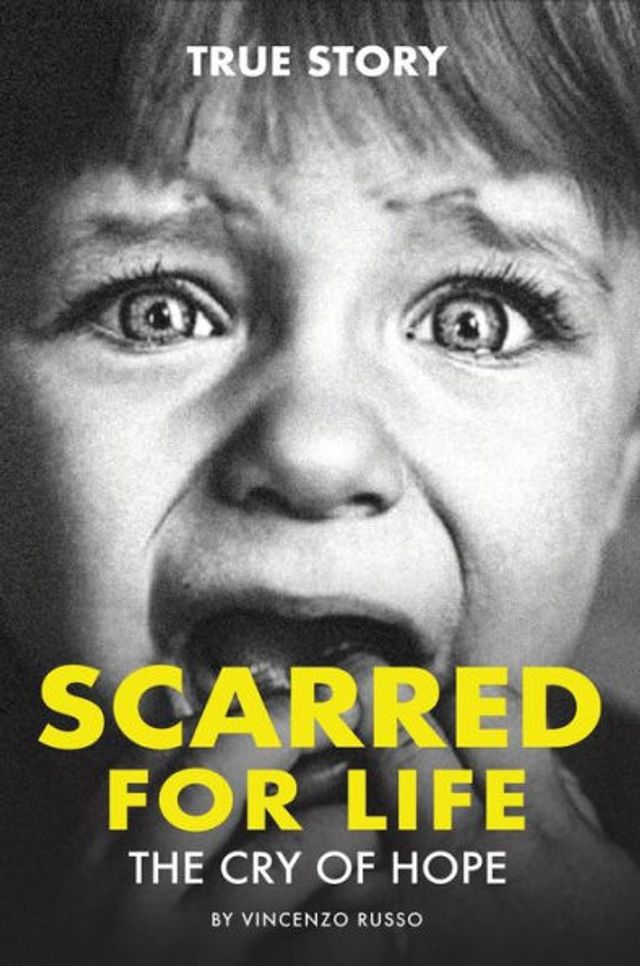Home
Cry the Beloved Mind: A Voyage of Hope
Loading Inventory...
Barnes and Noble
Cry the Beloved Mind: A Voyage of Hope
Current price: $22.95


Barnes and Noble
Cry the Beloved Mind: A Voyage of Hope
Current price: $22.95
Loading Inventory...
Size: OS
*Product Information may vary - to confirm product availability, pricing, and additional information please contact Barnes and Noble
'The Second Coming of Oliver Sacks.' This is one reader's portrayal of Dr. Vernon M.
Neppe's latest book 'Cry the Beloved Mind: A Voyage of Hope.'
High praise, indeed, given that
Dr. Sacks has achieved an international reputation with his books, movies and TV programs in the
area of unusual, abnormal brain functioning.
Vernon Neppe MD, PhD, in his own right an internationally respected neuropsychiatrist,
expert on brain medications, and author of Innovative Psychopharmacotherapy and The
Psychology of Déjà Vu, agrees that there are similarities: 'Dr. Sacks's books and TV series,' he
says, 'are about the brain and are meant for the general reader. Similarly,
Cry the Beloved Mind
aims at educating patients, their families, the public, students and academia about the brain.'
Dr. Neppe says that the first chapter of his book (entitled Awakenings Revisited) may well
be compared to the movie Awakenings. That film was based on Dr. Sacks's account on how
patients were re-awakened after many years by a special drug. But, he adds: 'Cry the Beloved
Mind encompasses even more, as I share several personal new discoveries with my readers as
well as targeting hope for recovery. My book is far more than just a wonderful way for the
general reader to be educated in areas such as depression, seizures, psychosis, brain medications
and social medical issues. I wrote it with a far deeper purpose in mind. There are many patients
suffering out there and I want to help them.'
is, indeed, a compassionate, respectful, self-help book which
allows patients, their families and the general reader to understand what their doctors are doing
when using powerful mind-modifying medications such as Prozac, BuSpar and Tegretol. As for
Dr. Neppe's consultations in the book, he has taken a fresh approach, writing in a style that he
describes as being 'a play within prose.' It is fundamentally a dialogue between the generic
'Doctor' and his patients or medical students using the entirely new literary genre of
'sciction', medical science expressed through fictitious composite case histories. Although
incorporating various patients, all the cases are based on fact, so that there is a real educational
opportunity while patient confidentiality is protected. The book functions as a unit with the
medical student, Andrew, developing not only skills but medical maturity as the book progresses.
The section of Dr. Neppe's book that some may find most intriguing are the pages devoted
to so-called 'medical social issues'. Embedded in every chapter, are short, spicy interchanges
about the use of generic medications, relating to issues surrounding legitimate informed consent,
as well as what constitutes normality, self-growth, and the ongoing dilemmas of treatment. Also
included are reasons why not to commit suicide.
For the reader, a survey of the Table of Contents of Cry the Beloved Mind: A Voyage of
Hope is most illuminating. Each of the twelve chapters build to make a magnificent whole. For
instance.
The woman who predicts earthquakes' provides the fascination for the education about
seizure advances.
Curing the incurable describes Dr. Neppe's amazing discovery of the first apparent cure for
the terrible movement disorder of tardive dyskinesia, one of the major scourges in all of
psychiatry.
'Tomorrow I will kill myself' changes when a patient's atypical brain firing is finally treated
successfully.
'The deep dark pit' illustrates how Dr. Neppe was able to help even the most resistant
depressed patient.
On the lighter side, two chapters are paired together: 'Sugar and spice' (discussing such social
drugs as coffee), and 'And everything nice' (focusing on herbal remedies)
And yet, the most valuable reference portion of the book may be the comprehensive glossaries:
patients and families repeatedly comment on how useful these are to their education; so do
students.
The author, Dr. Vernon Neppe has outstanding credentials. Not only is he an internationally
recognized pioneer in the fields of neuropsychiatry and psychopharmacology, but he communicates
that real caring, humanity, knowledge, humor, respect and warmth that we all want in our physicians.
We can identify compassionately with every unique and fascinating patient, learn to respect them, and
participate in an engaging medical detective mystery of finding solutions to the seemingly insoluble.
This is a book you do not want to miss. Every page educates and enthralls the reader, whether
patient, physician, intelligent general reader, student or therapist, touching important social issues
ranging from gun control to informed consent. The book's broad spectrum engages interest while
fascinating and teaching all at the same time.
Far more than pharmacology, this book delivers meaning for those who have lost it. Viktor Frankl did
so in an abstract sense, and Norman Vincent Peale more pragmatically in his theological directions.
This book promises to be the medical and pharmacological equivalent, unfolding through twelve
chapters the hope that, by careful evaluation, patients can, should and will get better.
The chapters form a series of linked stories blending several real patients together into one using the
new style of 'sciction', science through fiction. Through these fictitious case histories, Dr. Neppe
explores how correction of the underlying biology of the brain can do wonders for one's mind. The
use of extensive dialogue simplifies complex areas and allows easier targeting of specific areas of the
book such as depression and anxiety, seizures, psychoses and movement disorders. Dr. Neppe
provides insights into drug interactions as well as fashionable alternative medicines like St John's
wort, so that it feels like one is consulting with this master clinician.
has the qualities of a classic, a new style of educating, a voyage of hope for
those with difficulties and a wonderful introduction to the area for students of psychology, medicine,
as well as members of family and friends of patients.
Those in distress will benefit enormously by the positive message of success. But then so will those
interested in psychology, medicine or even a new style of writing.
Neppe's latest book 'Cry the Beloved Mind: A Voyage of Hope.'
High praise, indeed, given that
Dr. Sacks has achieved an international reputation with his books, movies and TV programs in the
area of unusual, abnormal brain functioning.
Vernon Neppe MD, PhD, in his own right an internationally respected neuropsychiatrist,
expert on brain medications, and author of Innovative Psychopharmacotherapy and The
Psychology of Déjà Vu, agrees that there are similarities: 'Dr. Sacks's books and TV series,' he
says, 'are about the brain and are meant for the general reader. Similarly,
Cry the Beloved Mind
aims at educating patients, their families, the public, students and academia about the brain.'
Dr. Neppe says that the first chapter of his book (entitled Awakenings Revisited) may well
be compared to the movie Awakenings. That film was based on Dr. Sacks's account on how
patients were re-awakened after many years by a special drug. But, he adds: 'Cry the Beloved
Mind encompasses even more, as I share several personal new discoveries with my readers as
well as targeting hope for recovery. My book is far more than just a wonderful way for the
general reader to be educated in areas such as depression, seizures, psychosis, brain medications
and social medical issues. I wrote it with a far deeper purpose in mind. There are many patients
suffering out there and I want to help them.'
is, indeed, a compassionate, respectful, self-help book which
allows patients, their families and the general reader to understand what their doctors are doing
when using powerful mind-modifying medications such as Prozac, BuSpar and Tegretol. As for
Dr. Neppe's consultations in the book, he has taken a fresh approach, writing in a style that he
describes as being 'a play within prose.' It is fundamentally a dialogue between the generic
'Doctor' and his patients or medical students using the entirely new literary genre of
'sciction', medical science expressed through fictitious composite case histories. Although
incorporating various patients, all the cases are based on fact, so that there is a real educational
opportunity while patient confidentiality is protected. The book functions as a unit with the
medical student, Andrew, developing not only skills but medical maturity as the book progresses.
The section of Dr. Neppe's book that some may find most intriguing are the pages devoted
to so-called 'medical social issues'. Embedded in every chapter, are short, spicy interchanges
about the use of generic medications, relating to issues surrounding legitimate informed consent,
as well as what constitutes normality, self-growth, and the ongoing dilemmas of treatment. Also
included are reasons why not to commit suicide.
For the reader, a survey of the Table of Contents of Cry the Beloved Mind: A Voyage of
Hope is most illuminating. Each of the twelve chapters build to make a magnificent whole. For
instance.
The woman who predicts earthquakes' provides the fascination for the education about
seizure advances.
Curing the incurable describes Dr. Neppe's amazing discovery of the first apparent cure for
the terrible movement disorder of tardive dyskinesia, one of the major scourges in all of
psychiatry.
'Tomorrow I will kill myself' changes when a patient's atypical brain firing is finally treated
successfully.
'The deep dark pit' illustrates how Dr. Neppe was able to help even the most resistant
depressed patient.
On the lighter side, two chapters are paired together: 'Sugar and spice' (discussing such social
drugs as coffee), and 'And everything nice' (focusing on herbal remedies)
And yet, the most valuable reference portion of the book may be the comprehensive glossaries:
patients and families repeatedly comment on how useful these are to their education; so do
students.
The author, Dr. Vernon Neppe has outstanding credentials. Not only is he an internationally
recognized pioneer in the fields of neuropsychiatry and psychopharmacology, but he communicates
that real caring, humanity, knowledge, humor, respect and warmth that we all want in our physicians.
We can identify compassionately with every unique and fascinating patient, learn to respect them, and
participate in an engaging medical detective mystery of finding solutions to the seemingly insoluble.
This is a book you do not want to miss. Every page educates and enthralls the reader, whether
patient, physician, intelligent general reader, student or therapist, touching important social issues
ranging from gun control to informed consent. The book's broad spectrum engages interest while
fascinating and teaching all at the same time.
Far more than pharmacology, this book delivers meaning for those who have lost it. Viktor Frankl did
so in an abstract sense, and Norman Vincent Peale more pragmatically in his theological directions.
This book promises to be the medical and pharmacological equivalent, unfolding through twelve
chapters the hope that, by careful evaluation, patients can, should and will get better.
The chapters form a series of linked stories blending several real patients together into one using the
new style of 'sciction', science through fiction. Through these fictitious case histories, Dr. Neppe
explores how correction of the underlying biology of the brain can do wonders for one's mind. The
use of extensive dialogue simplifies complex areas and allows easier targeting of specific areas of the
book such as depression and anxiety, seizures, psychoses and movement disorders. Dr. Neppe
provides insights into drug interactions as well as fashionable alternative medicines like St John's
wort, so that it feels like one is consulting with this master clinician.
has the qualities of a classic, a new style of educating, a voyage of hope for
those with difficulties and a wonderful introduction to the area for students of psychology, medicine,
as well as members of family and friends of patients.
Those in distress will benefit enormously by the positive message of success. But then so will those
interested in psychology, medicine or even a new style of writing.
- The woman who predicts earthquakes' provides the fascination for the education about seizure advances.
- Curing the incurable describes Dr. Neppe's amazing discovery of the first apparent cure for the terrible movement disorder of tardive dyskinesia, one of the major scourges in all of psychiatry.
- 'Tomorrow I will kill myself' changes when a patient's atypical brain firing is finally treated successfully.
- 'The deep dark pit' illustrates how Dr. Neppe was able to help even the most resistant depressed patient.
- On the lighter side, two chapters are paired together: 'Sugar and spice' (discussing such social drugs as coffee), and 'And everything nice' (focusing on herbal remedies)


















